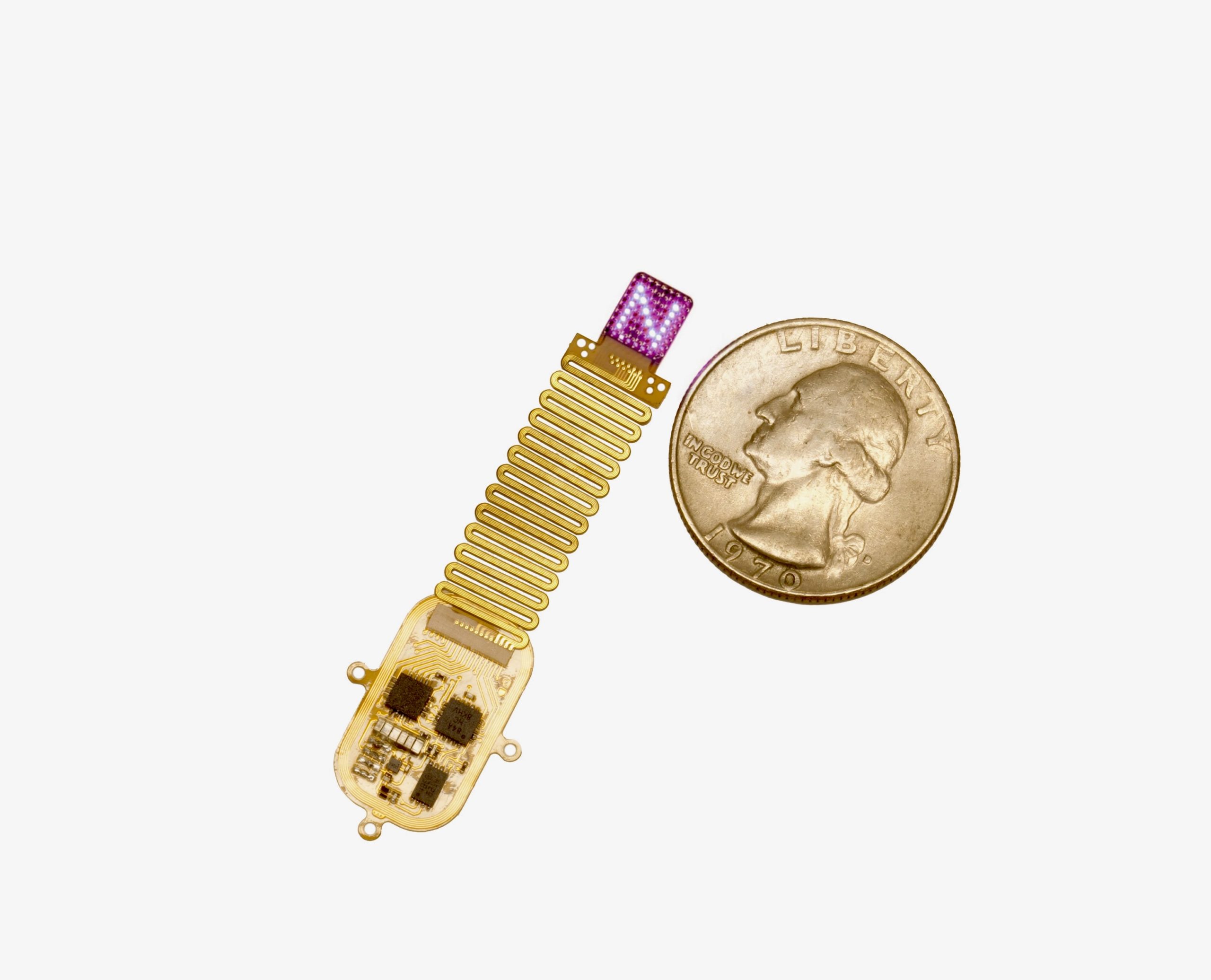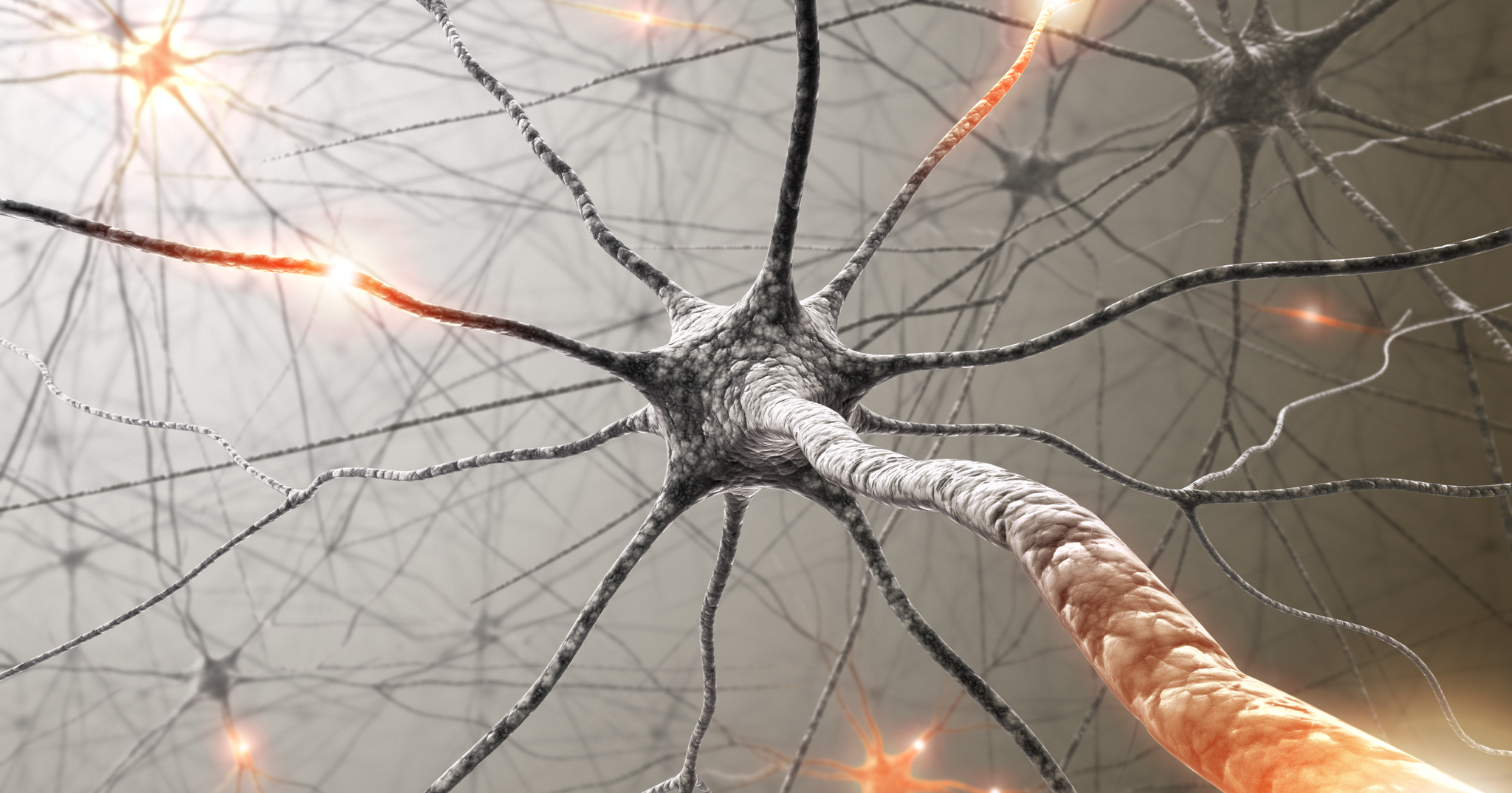Byline: Amanda Morris
-

Paralysis Treatment Heals Lab-Grown Human Spinal Cord Organoids
Using lab-grown human spinal cord organoids — miniature organs derived from stem cells — Northwestern scientists have modeled different types of spinal cord injuries and tested a promising new regenerative therapy.
-

Shape-Shifting Cell Channel Reveals New Target for Precision Drugs
In a new study published in Nature Communications, Northwestern scientists have uncovered how a critical membrane pathway controls the flow of chemical messages responsible for everything from brain activity to inflammation.
-

NU-9 Halts Alzheimer’s Disease In Animal Model Before Symptoms Begin
In a new study, scientists have identified a previously unknown driver of Alzheimer’s disease, and an experimental drug developed at Northwestern University has demonstrated further promise as an early intervention to treat the disease.
-

Wireless Device ‘Speaks’ to the Brain With Light
Northwestern scientists have developed a wireless device that uses light to send information directly to the brain — bypassing the body’s natural sensory pathways, as detailed in a new study published in Nature Neuroscience.
-

CRISPR’s Efficiency Triples With Spherical Nucleic Acid Delivery System
A new Northwestern study has unveiled a new type of nanostructure that dramatically improves CRISPR delivery and potentially extends its scope of utility.
-

New Strategy Doubles Chemo Effectiveness in Treatment-Resistant Cancer
Northwestern scientists have discovered that the organization of a cell’s genetic material dictates cancer’s ability to adapt, according to a recent study published in the Proceedings of the National Academy of Sciences.
-

Memories Drift Across Neurons Over Time
In a new study published in Nature, Northwestern neurobiologists have found that the brain’s internal GPS changes each time we navigate a familiar, static environment.
-

‘Dancing Molecules’ Treatment Receives FDA Orphan Drug Designation
“Dancing molecules,” a promising new treatment for acute spinal cord injuries developed at Northwestern University, has received Orphan Drug Designation from the U.S. Food and Drug Administration.
-

John Rogers Elected to the Royal Society
Northwestern bioelectronics pioneer John A. Rogers, PhD, has been elected as a Fellow of the Royal Society, the United Kingdom’s national academy of science and one of the most prestigious academies in Europe.
-

New Wearable Tech Simulates Realistic Touch
In a study published in Science, Northwestern University engineers have unveiled a new technology that creates precise movements to mimic complex sensations including pressure, vibration and stretching.





